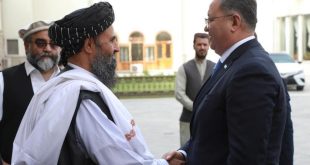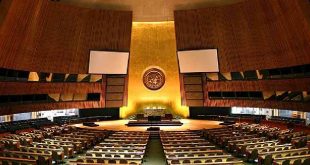By Matin Royeen
Introduction: Afghanistan has been at war over four decades. The destructive impact of war and violence has adversely affected individuals, families and communities throughout the country. The psychosocial impact of war has left deep scars on individuals and families and have resulted in broken relationships among people. The impact of terrorism has created fear, trauma and pain with negative consequences on the overall health of the nation. Unfortunately, ethnic polarization, lack of political consensus among leaders and security and economic challenges in the country are formidable challenges that need collective fortitude by leaders on how to repair the damaged relationships and move toward national purpose and unity. This is not an easy task and it is not the sole responsibility of the top leadership in charge of the government. If it takes a village to raise a healthy child, it takes a collective action by political leaders, ulema, members of civil society, women groups, ethnic elders and other influential personalities to build a common purpose towards peace-making and peace-building. Since leaders are human beings with emotions and feelings and maintaining a healthy balance between authenticity of feelings and irrational impulses requires emotional intelligence. While some components of human personality are dictated by the law of genetics, the other dimensions of human intellect and emotions are socially learned skills. Possessing Emotional Intelligence is a precondition toward trust building, community development and achieving national consensus among leaders across the country in Afghanistan.
Leadership and Emotional Intelligence: It is not easy to define leadership in a few sentences due its complexity and multi-dimensionality. Leadership is about influencing people to perform stated tasks and achieve goals. Effective leadership is about inspiring others to reach new heights in organizations and government. It involves motivating people with a positive impact on thinking, behaviors and attitudes. Leadership is both an art and a science by complementing knowledge with creativity, innovation and adaptability. Possessing emotional intelligence is a very important characteristic of a successful leader. Emotional Intelligence is the ability of a leader to manage himself/herself efficiently in relationships with other people.
Dr. Daniel Goleman reveals that Emotional Intelligence is one’s ability to perceive, access and generate emotions as means of promoting emotional and intellectual growth. This definition highlights the ability of the leaders to tune in, interpret, express their own emotions and as well as to promote emotional growth within and in their followers by virtue of the leader’s actions. This requires a great deal of emotional maturity, a rare quality within human beings, especially during moments of vulnerability and crisis.
The Brain and Human Emotion: Our brains play an important role in regulating human emotions in different circumstances. This means how the leaders handle themselves and their relationships and how they conduct daily business, depends on the design of the human brain.Gifted leadership occurs when the heart and the head meet, when the feelings and the head are in sync. The brain design involves our Amygdala that is part of our limbic system where our emotional centers serve as command and control during emergencies triggering the fight, freeze and flight responses.
Personal Competencies: Dr. Goleman discusses four competencies of emotional intelligence that are important requirements for effective leadership. The first two competencies Self Awareness and Self Management are considered personal competencies. The other two components of Social Awareness and Social Relationships are called Social Competencies.
1. Self-Awareness: It is important for the leaders to be aware of their own emotions and recognize its impact on others during communication/interaction. The ability of a leader for accurate emotional self assessment is critical and great leaders move us through our emotions. Great leaders drive emotions in the right directions, especially during the moments of adversity. Through the course of human history, leaders in different cultures have had the ability to move their followers in the proper direction by providing guidance and support. Great leaders have always served as the group’s emotional guide. When leaders move emotions positively, they bring everyone the best energy and potential This is called Leadership by Resonance. When leaders drive people’s emotions in a negative direction, it brings the dark side to the surface. This is called Dissonance Leadership.
2. Self-Management: We must remember that leaders are human beings with emotions. How leaders express emotions will have a considerable impact on followers. Emotional self control and keeping disruptive emotions and impulses intact are important. Displaying transparency involves honesty, integrity and trustworthiness which have a positive emotional impact on others. The leaders’ adaptability to changing situations and the willingness to move self and others towards standards of inner excellence are great attributes of emotional intelligence. Finally, the leaders ability to act and seize opportunities for collective growth in a spirit of optimism and hope contribute a great deal to emotional intelligence.
SOCIAL COMPETENCE: The following two competencies determine how leaders manage relationships.
3. Social awareness: The ability of a leader to understand, appreciate and feel other people’s emotions is called empathy. Possessing skills for understanding people’s behaviors and attitudes and having insights into organizational culture, social and political climate are considered great assets. Understanding the needs and desires of the constituencies are important attributes of a service oriented leader.
4. Relationship Management. Leaders with emotional intelligence inspire, drive and guide others with compelling vision to new heights. They offer and accept constructive criticism for improving relationships and promoting teamwork and provide effective intervention strategies for conflict management/resolution. Serving as a good role model, leaders with emotional intelligence serve as change agents, cultivate mutual respect and cooperation among people.
Conclusion: The Afghans are very unique people. Fiercely independent and their uncompromising free spirit puts them in a difficult category to govern. Whether it is the geography, the events of the past history or the nature of the Afghan people in general that have contributed to the formation of such a strong identity, warrants more discussion and in depth analysis. Since 1978, history has not been kind to the Afghan people due to political upheaval, civil wars and violence. The Afghans have paid a heavy price for freedom and and, in their search for a stable normal life that has so far eluded all. While facing adversity, the Afghan leaders across the country can sharpen and utilize the above mentioned competencies as weapons of their emotional intelligence. It is well understood that leaders as human beings have different personality temperaments and varying thresholds for social/political ambiguity. Exercising emotional intelligence will help leaders become effective managers of human relations, build a sense of community belonging and better governance. In order to achieve these noble goals, the Afghan people deserve leaders with emotional intelligence in action.
Today, there is a good opportunity for peace with the Taliban in Afghanistan. First, the Afghan leaders must develop mutual understanding and trust in the form of group consensus towards peace. Second, the Taliban should use the mistakes of the past as a guide for the future of Afghanistan as partners for peace. Third, the United States and our allies can help facilitate a peace agreement that is practical and value based. These actions require the use of emotional intelligence as instruments of bridge building, understanding, and empathy towards peace and reconciliation in Afghanistan.
Dr. Matin Royeen is an Afghan-American educator. He can be reached at: [email protected]
 Afghanistan Times
Afghanistan Times




